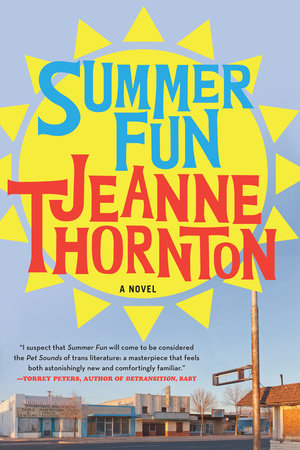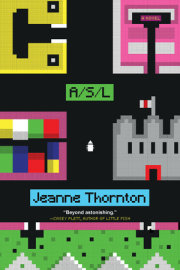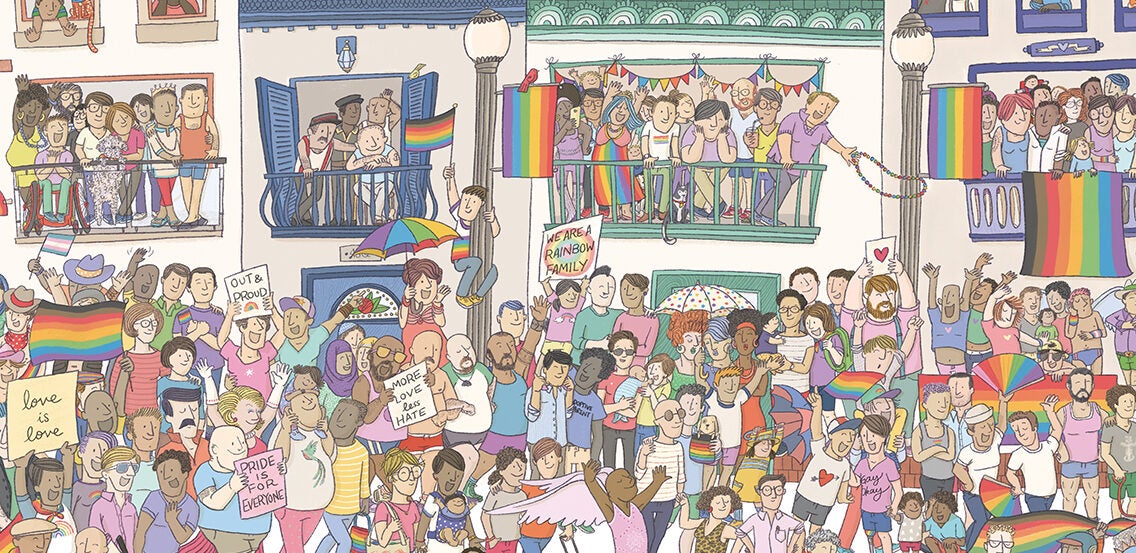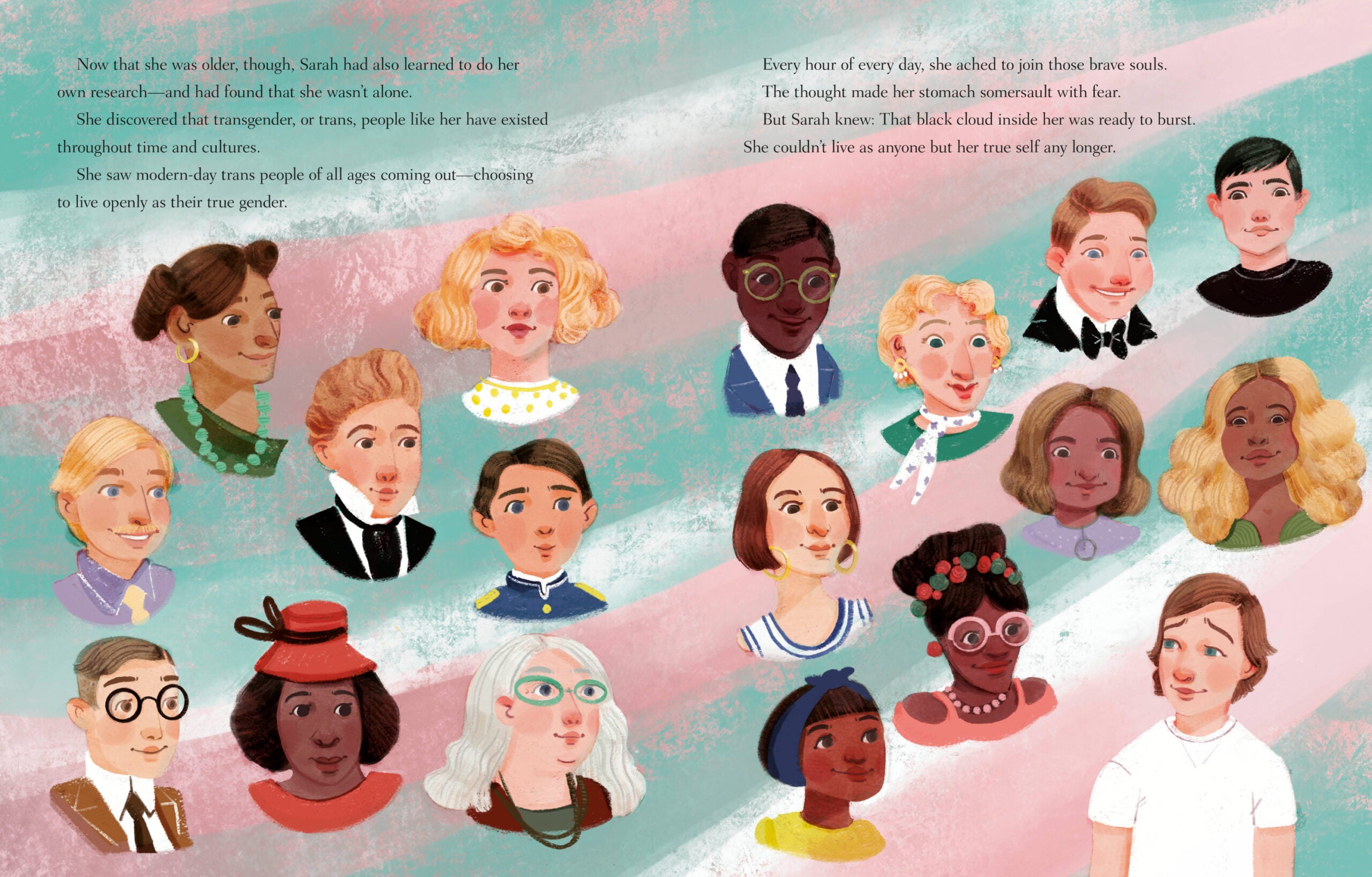Prologue Dear B——,
Money, and lots of it, has been spent on cultivating this dog. That much is clear from the moment you bend aside the landscape bushes that line the front porch of your childhood home in Hawthorne, CA, revealing the hollow space where it’s crawled to die. The dog is a gaunt shadow, a crescent moon built for racing, fur still smooth and groomed. At one time someone clearly loved this dog, brought it table scraps and brushed out any aerodynamic impurities that might lengthen its racing odds. You wonder if its owner misses it. One of its flanks is bruised, a crush of blood that blooms through the thin fur; one of its legs seems broken or on the point of breaking. It twitches, lying on its side, it whimpers; its big eyes look at you.
You crouch, both to get closer to the dog and to keep your head out of sight of the porch. You’ve gained a few inches in the weeks since your tenth birthday, 1953, and you need to make sure no one from your family catches sight of you. If your mom were alone, of course—or with your baby brother Adam, or less optimally with your middle brother Eddie—you’d be happy to ask her for help. Sometimes she is very clever about these things, and working together, you think you could help the dog without your father knowing about it. But this option isn’t open to you now: your father has two very important business clients to dinner tonight, or maybe people whose business he’s trying to win. Despite the many lengthy monologues he’s given you, your mother, and your brothers over the past weeks on the subject, you’re not altogether clear. All you know is that, having been introduced to the two men on their arrival, you’re supposed to occupy yourself outside while your brothers sleep and parents eat.
Further, you’re supposed to remain in range. At any time—your dad’s informed you of this repeatedly, speaking in his insistent night-racoon scratch of a voice and putting his hand on your shoulder in a way that you feel guilty for feeling afraid of—he may need you to rush in to help him with his charm offensive. He may call on you to sing “Old Folks at Home,” “Beautiful Dreamer,” “You Are My Sunshine,” one of your standards, to help him secure his investment of dinner in these men. If you’re not here when he calls, he will notice; if he notices, he’ll get anxious; when he gets anxious, trouble begins.
Sitting here under the bushes with this dog is courting trouble, not preventing it. Yet still you sit here, and with your eyes closed, you rest your hand on the greyhound’s heart. The material components of caring come together easily, associatively, like the notes in a braid of harmony. You whisper to the shaking dog. And after a moment, you rest your face, as gently as you can, into the soft join between his powerful barrel of ribs and his lean front leg that terminates in a thick paw. He relaxes at your touch, heart beating. You imagine he closes his eyes as you close yours.
The earth is wet from rare morning rain that creeps into the hem of your short pants.
I’m gonna help you, you tell him. —You’ll see.
And you’re in luck: a few blocks away, at the corner of Mt. Vernon and Fairway, the boy you’re seeking is home. Your cousin, Tom Happy, stands in the front yard of the house that his father and your mother’s sister Marcella have recently moved in to. Tom is throwing a small pile of rocks, one at a time, at the trunk of a skinny oleander, staked in place to help it grow. Every time he chips the bark, he makes an animal hiss, cupping the sound with his hands like seashells until it sounds like cheers.
Hey Tom, you say, and he starts, embarrassed, and turns to you: blue mountain eyes, wheat-blond hair, jaw that will square up with time. He smiles, and it makes you nervous. Just a year or two before, his smile was easy, automatic; now it’s more like he knows it’s weird not to smile, as if someone has told him to practice it, just as you guess someone has told him to practice throwing rocks. Maybe you should also be practicing these things.
B——, he says. —How’s it hangin’ there, buddy?
You laugh, confused. —Hey Tom, you say. —I’ve got kinda a confidential situation over at my place, and I maybe need your help? Want to come over? It involves magic.
His eyes get wide; this is why you don’t worry too much about his mean smile, because he always folds up after a minute in your company. Around you he grows innocent again.
You know magic? he asks. —No you don’t.
I mean I don’t know it yet, you say. —We have to learn it together.
You guess that he believes you, B——; you guess that he always will.
Your family doesn’t go to church all that regularly; your father likes to tell you that he thinks people believe in God because there’s something empty in them. But your Aunt Marcella insists that your mother and the rest of you accompany her on the big occasions, Christmas and Easter, the hall full of Methodist attention and your parents’ smiles: your mother’s polite, your father’s smug, as if he and the priest have an understanding. You don’t smile; your jaw hangs open, listening to the choir behind the priest, their voices swooping and knitting like seagulls—
Lo! the sun’s eclipse is over Alleluia Lo! he sets in blood no more— You try to put a nickel in the plate, but your dad puts his fingers on your wrist.
Be smart, he mouths. So you hold the nickel tight—1944 its date, copper and manganese leaching into your fingerprints—and you listen to the seabird voices in the chords. You’ve already learned not to tell anyone else that you hear them.
Tom is at first afraid to help you move the dog to the backyard shed—Oh jeez, it looks like a car hit him or something—but working between the two of you, you know you can manage it. The dog gazes up, suspended between you; either she lacks the energy to bite or she senses some good intention from you and lies still. In the shed, you lay her on a coiled blanket. The shed, though perilously close to the house’s back door, is windowless save for a skylight covered in a moiré of leaves and dust, and its walls are lined with shelves that list ten degrees to either side, covered with all the belongings your father has not yet decided to throw away: bales of yellow newspapers, a short stack of Vocalion blues 78s he’s spent some years collecting, a doctor’s kit of uncertain provenance, a wooden frame without a picture in it, pitted from years of sea salt. It’s all heaped in loose piles with chaotic borders: here, where no one looks, your father lets his careful control lapse. So it’s here where you have to begin your work.
In a box, you find candles and long kitchen matches. With practice, you’re able to light them and arrange them on either side of the arc of the whimpering dog. Tom knows the hymn just as well as you do; this gives you common magical ground. So you kneel beside him on the altar, let him sing the melody while you try to get your voice to roll to the back of your small palate, piping it higher than it might otherwise go, sparkling mist over the top of his words—
Soar we now where Christ has led— The dog on the altar whines and twitches, its paws moving in rhythm. Hanging over the altar is a beaten-up flag from your dad’s war-era work: one time you saw him drop it in the dirt, and he declined to let it burn, so it isn’t unpatriotic to use it this way. And the breath of Charles Wesley is your breath: from your tailbone to your crown, you can feel yourself filling with something, eerie electric blue. On impulse, you reach your hand toward Tom. And if it was two years later, B———one year later, even six months—Tom would stop singing at this moment, would draw back his hand like a turtle into its shell. But you’re young enough now, untaught enough, and he doesn’t laugh, just takes your hand in reply. He grips it tightly; you feel safer, as if the fire in you can arc now into him, too, a friendly circuit your skin makes. And you kneel there together before the altar, singing life into the dying greyhound.
And you really believe—and maybe Tom still does too—that if you sing hard enough, you can reverse the effects of the car that screamed into this dog from the LA streets.
But the name B—— bellows from beyond the corrugated tin door. You and Tom have just enough time to let go of one another’s hands before the door slams open, and your father is there.
People always tell you that you and your father look alike. They say this as if they mean it to be a compliment, and maybe for another kid such as yourself, it really would be. But you’ve always felt dread about the idea. You suppose that he’s handsome—tall, his tallness cheated a little by his eager forward lean, hair the same mysterious middle territory between red and brown as your own, its borders already retreating from testosterone, eyes intense and blue and rarely blinking. (This is a point of difference you’ve always noted; you have your mother’s eyes, apple and cinnamon.) He’s wearing a suit and tie, its jacket generously tailored in tempo with the swift expansion of his courier business in the boom years since the war. He is flanked now by his dinner guests: a major in uniform and a lean, long-faced blond man who looks as if he designs rockets. Noticing the dog, your father leans forward, trying to shield them from the sight.
I don’t understand, he growls, what you boys want to accomplish here.
Tom takes his chance and bolts, skirting the major’s legs. You and your dying dog are both left alone under your father’s stare. You have embarrassed him in front of men who are important to him. His breath smells like spice and water, abstinent. He is massive, drawing you into his anxious gravity like the earth itself.
Copyright © 2021 by Jeanne Thornton. All rights reserved. No part of this excerpt may be reproduced or reprinted without permission in writing from the publisher.








